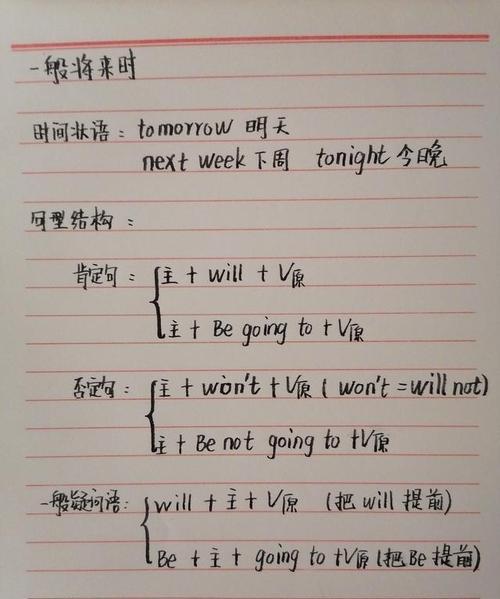在英语中,对未来的猜测通常使用“will + 动词原形”,例如:“我认为明天会下雨。”如果认为某事已确定会发生,可以使用“be going to + 动词原形”,例如:“我下周要买新车。”

首先,我们需要知道英语中表示将来的时态有哪些。最常用的将来时态是“will + 动词原形”,例如:“I will go to the party tonight.” 还有一种常用的将来时态是“be going to + 动词原形”,例如:“I am going to travel to Japan next month.”
那么,当我们要表达对将来的猜测时,应该使用哪种将来时态呢?一般来说,用“will + 动词原形”表示对将来的猜测是最常见的。例如:“I think it will rain tomorrow.” 或者,“She will probably be late for the meeting.”
此外,如果我们认为某些事情已经确定会发生,我们可以使用“be going to + 动词原形”来表达对将来的猜测。例如:“I am going to buy a new car next week.” 或者,“They are going to have a baby soon.”

